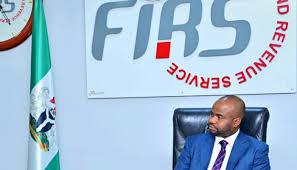The Federal Inland Revenue Service (FIRS) has urged the Office of the Accountant-General of the Federation to ensure that all Ministries, Departments, and Agencies (MDAs) of government comply with tax deductions and remittances. The Executive Chairman of FIRS, Dr Zacch Adedeji, made the call on Wednesday in Abuja during a two-day workshop on improving tax administration in Nigeria. The workshop, which brought together government officials and tax administrators, was themed “Enhancing Tax Compliance through Collaboration.”
Dr Adedeji said the Accountant-General of the Federation, Mr Shamseldeen Ogunjimi, must ensure that withholding tax, Value Added Tax (VAT), and stamp duties are properly deducted and remitted by the MDAs to boost government revenue. He explained that the Accountant-General’s office, which supervises financial controls and fund disbursements across all MDAs, plays a vital role in strengthening tax compliance in the public sector.
According to the FIRS Chairman, despite the adoption of new technologies like the Government Integrated Financial Management Information System (GIFMIS) and the FIRS TaxPro MAX platform, many MDAs are still defaulting in their tax obligations. He said the lapses, especially in withholding tax deductions and VAT remittances, are often caused by technical shortcomings and a lack of knowledge on tax compliance requirements among public officials.
Adedeji expressed concern that these gaps are causing significant revenue losses for the country and creating recurring problems during audits. He noted that the workshop was not just for sharing information but also a strategic opportunity for government agencies to design practical solutions to close the gaps in tax compliance. He stressed that Nigeria needs a smarter, technology-driven tax system that will make tax compliance easier for public institutions.
Dr Adedeji also emphasised the importance of government institutions setting an example in tax compliance. He said when public agencies comply with tax laws, it sends a strong message to the private sector and ordinary citizens that no one is above the law. He insisted that the credibility of public institutions is measured by their adherence to tax regulations, adding that Nigeria must increase its revenue base to meet national development goals.
The FIRS Chairman said, “If we must grow revenue to meet our national development priorities, then we must begin by ensuring that public sector actors play by the rules – and help others do the same.” He maintained that efficient tax collection is crucial for achieving the promises of good governance and economic development in Nigeria.
On his part, the Accountant-General of the Federation, Mr Shamseldeen Ogunjimi, who was present at the workshop, described tax as the lifeblood of every economy. He said taxation remains a key fiscal priority and a national responsibility that every MDA must take seriously. Ogunjimi acknowledged that with closer collaboration between the FIRS and the Office of the Accountant-General, Nigeria can build a stronger tax system that supports economic growth and sustains good governance.
He said his office is committed to ensuring that all MDAs comply with their tax obligations in line with existing laws. Ogunjimi added that timely tax deductions and remittances by government institutions will not only increase government revenue but also build the confidence of taxpayers in the system.
The workshop participants included officials from various MDAs, tax professionals, and financial experts. Discussions focused on strengthening cooperation between government agencies, improving tax education for public officials, and leveraging technology to enhance tax compliance.
Tax experts at the event also called for continuous training of government finance officers on tax matters to address the knowledge gap identified by FIRS. They advised that consistent enforcement of tax laws, coupled with accountability and transparency, will help Nigeria maximise its revenue potential.
FIRS has in recent years focused on modernising its operations through digital platforms like TaxPro MAX to improve tax collection and compliance monitoring. The Service has also emphasised collaboration with other government agencies as a strategy to enhance tax administration in Nigeria.
